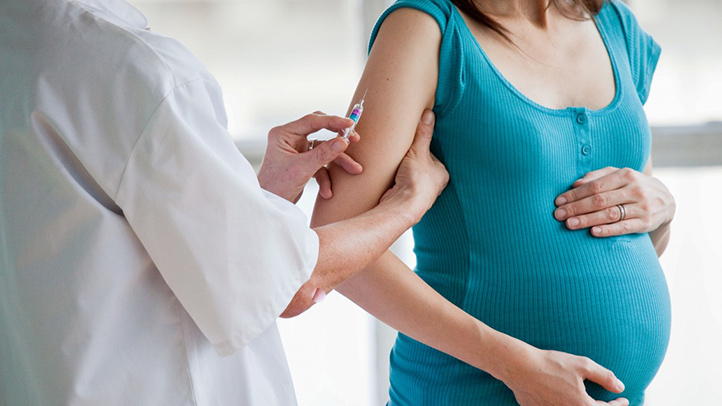By Dr Arif Qazi
Congratulations, for being pregnant. Best feeling for any woman is to be pregnant. Being pregnant you get so many questions in your mind what to do? What not to? What should I eat to have a healthy baby? What should I avoid during pregnancy?
Here are some Do’s and Don’ts of pregnancy which can answer some of your questions.
Attend a caregiver (health worker/doctor)

Once confirmed if you are really pregnant. Visit your doctor or health worker in your area as early as possible. Discuss with your parents, friends and relatives, or ask one of your other healthcare providers to recommend someone. Choose an obstetrician who can give you service for whole pregnancy period and at the time of delivery.
Blood tests can see what eyes cannot

During your pregnancy, you may be offered blood tests. These tests identify your blood group type and Rh status, haemoglobin level to mention in specific. Other tests like test for syphilis, hepatitis B can also be offered. If your doctor doesn’t ask you for HIV test, then you make sure that it gets done.
Apart from blood tests in some cases if you are at high risk for gestational diabetes (increased sugar level during pregnancy), a glucose challenge test might be done.
You can be asked for different tests depending on your case.
Coffee, alcohol, smoking in pregnancy
If you smoke, quit smoking,
If u take alcohol, stop it.
If u take tobacco, say no to it.
If u take any of the above, it means you are providing it directly to your developing baby. It can give rise to many problems in your baby like low birth weight, increase chances of miscarriage and preterm birth, congenital defects etc. It’s never too late to quit any bad habit.
Cut down the caffeine you take because it can also give some pregnancy problems.
Danger signs of pregnancy
· Your baby is moving or kicking less than usual (of course once your baby begins moving regularly).
· Severe or persistent abdominal pain or tenderness.
· Vaginal bleeding or spotting.
· An increase in vaginal discharge or a change in the type of discharge.
· A feeling that your baby is pushing down.
· lower back pain (especially if it starts during pregnancy)
· Abdominal pain or more than four contractions in an hour before 37 weeks of your pregnancy.
· Burning urination, or little or no urination.
· Severe or persistent vomiting
· Chills or fever of 100 degrees Fahrenheit or higher.
· Visual disturbances such as double vision, blurring, dimming, flashing lights, or spots in your field of vision
· Persistent or severe headache
· Any swelling in your face or puffiness around your eyes, excessive swelling over hands, feet or ankles, or a rapid weight gain.
· A persistent or severe leg cramp or calf pain
· Trauma to the abdomen such as a fall
· Fainting
· Difficulty in breathing, coughing up blood, or chest pain.
· Severe constipation accompanied by abdominal pain or severe diarrhea that lasts more than 24 hours.
· Flu exposure or symptoms.
· Depression or severe anxiety.
If you develop any of the above, seek help immediately.
Eat well for healthy mother and baby

Take healthy food and avoid hazardous food. Start avoiding foods that could contain bacteria, parasites, or toxins e.g. undercooked meat, unpasteurised milk, raw eggs, raw fish and other raw sea foods.
Pregnancy diet should ideally be light, nutritious, easily digestible, rich in proteins, minerals and vitamins. The diet should contain in addition to principle food at least half litre of milk, if not 1 litre, colourful fruits and veggies, eggs, dry fruits. You need extra iron during pregnancy, jaggery and ground nut laddu are cheap and good source of iron.
Eat small meals frequently
If you are a strict vegetarian, or have a medical condition such as diabetes, gestational diabetes, or anaemia, or have previously delivered a low-birth-weight baby, talk to your doctor to give special advices.
Folic acid and iron
Take your medicines regularly given by your health care provider.
When you give first visit to your health care provider, they may give you some medicines mainly vitamins specially folic acid and other medicines. Take them regularly as prescribed.
It is particularly important to get enough folic acid while trying to conceive and during your first trimester. Folic acid proved to reduce risk of developing neural tube (develops into spinal cord) birth defects in your baby.
Iron is essential for proper growth of the baby. Iron requirement is increased during pregnancy. In addition to usual iron you take during pregnancy extra iron should be provided to you may be in the form of food or medicine depending on your haemoglobin level.
Give detailed information
All your health related details are important and should be told to your doctor.
· Details of your menstrual cycles
· First day of your last period was (to determine your expected date of delivery)
· Any gynaecological problems you have now or have had in the past
· Any sexually transmitted infections
· Details about any previous pregnancies, abortions
· Other medical diseases
· Chronic conditions and any medications you are taking
· Drug allergies
· Psychiatric problems
· Past surgeries or hospitalizations
· Smoking or any other addiction
· Your family’s medical history
· Whether any of your relatives have had any chronic or serious diseases.
Do a proper genetic and birth defect history
Hygiene and pregnancy
You should take daily bath but take care you may slip in bathroom due to imbalance.
You can avoid so many infections by simply proper hand washing.
Wear loose and comfortable garments, high heel shoes should be avoided.
Immunization – a must do

In India, Immunization for tetanus is regularly given. 2 injections with 2 months apart are given. Other immunization is required if epidemic or travelling to endemic zone.
Live virus vaccines such as measles, rubella, mumps and yellow virus are strictly avoided.
Jot down all important events
Prepare a diary for important notes during your pregnancy period
Note down the first day of your last period so your caregiver can determine your due date and it will be required till the time of your delivery.
Make a list of any questions that arise.
Talk to relatives on both sides about your families about medical history as it is important to know for caregiver if there is any chronic disease or genetic abnormalities run in either of your families.
Keep a track of weight gain

Your health provider or yourself can keep a record of your pregnancy weight to see whether weight gain is appropriate or not. Excessive weight gain or poor weight gain both are not acceptable.
Optimum weight gain for normal BMI woman is 11 kg. If BMI is 26-29 then weight gain should be around 7kg. And it will be less as BMI increases.
Limit heavy activities
Make sure your activities are safe or not?
During pregnancy some activities, jobs, and hobbies can be dangerous to you and your developing baby.
Avoid heavy works. Moving furniture or heavy water bucket isn’t a good idea now.
Stay away from work involving handling of infected material, Prolonged, standing heavy lifting, climbing or carrying, excessive noise, heavy vibrations, such as from large machines and extreme temperatures.
Medications and its effects
Inform your caregiver about medications you are taking.
Many drugs even some commonly used over the counter are not safe during pregnancy. If you take any medicine for any of your disease tell it to your caregiver and ask them if it is safe or not. Mention everything, even vitamins, supplements, and herbs or any type of preparation you are taking. These medicines can be harmful to your baby.
No dehydration at any cost.
Drink adequate water.
Depending on the season and area where u live quantity may change. Ask your health care provider for adequate amount for you because being hydrated is very important.
Drinking plenty of fluids helps prevent dehydration as water carries nutrients in the blood which reaches to your baby. This is especially important in the later part of pregnancy, when dehydration can cause contractions that can trigger preterm labour.
Water also helps prevent some common pregnancy problems such as constipation, haemorrhoids, and bladder infections.
Obey your doctor
Do regular check-ups, it is utmost important for healthy pregnancy. Follow their advices and surely you will be benefited.
Psychological support -don’t underestimate

Talk to other pregnant women or other women who are close to you. In some situation they can guide you and give you psychological support. Share your fears, hopes, excitement and question with other expectant mothers.
Questions deserve answers
Feel free to ask any question to your health care provider. Any doubt, any worry share it with them u will feel better and you will proper answers.
Rest and sleep

You may continue your usual daily activities throughout pregnancy however excessive and strenuous work should be avoided.
Sleep for 10hrs. 8hrs in night 2 hours in afternoon.
Take naps and sleep on your left side.
Train yourself to sleep on your left side. This position helps blood flow to uterus and thus your baby. Getting used to this position early in pregnancy will help you sleep better during later part of pregnancy.
If you wake up at night, don’t worry, interrupted sleep is perfectly natural during pregnancy .
Sex and pregnancy
Scientifically you can have sex during your pregnancy unless you have any complications that make sex dangerous conditions like:
· Placenta praevia
· Premature labour
· Unexplained vaginal bleeding or abnormal discharge
· Cervical insufficiency
· A dilated cervix
· Ruptured membranes (your water has broken)
· An outbreak of genital herpes.
This makes sex harmful.
Travelling during pregnancy
Travel by vehicles having jerk better to be avoided.
Long journey preferably be done during to 2nd trimester.
Rail route preferred over bus route.
Pressurised aircraft travelling is safe up to 36weeks only.
No aircraft travelling in complicated cases like placenta praevia, pre-eclampsia, severe anaemia and sickle cell anaemia etc.
Stand up, move around, stretch frequently if you’re going long distance as it may cause deep vein thrombosis a condition where a blood clot is formed in leg veins.
Ultrasonography is safe

Ultrasonography can be done any time during pregnancy but usually it is done during the second trimester of pregnancy where we can see the condition of baby, development and progress.
It can see whether your baby is in good condition or not. Different body parts of your body can be seen and if any problem or any defect in the baby can be detected at earliest so that necessary action can be taken.
Visit a dentist
Maintain good dental and oral hygiene.
You can get regular check-ups done. Fluctuating hormone levels can cause gums to swell.
Walk a distance

You should have a 15- to 20-minute walk if you are not exhausted, it will make you feel fresh
Bring drinking water with you to avoid dehydration while you walk.
Stop walking immediately and call your healthcare provider if you have any of the following symptoms: vaginal bleeding, difficulty breathing, dizziness, chest pain, muscle weakness, calf pain or swelling, preterm labour, decreased fetal movement, apparent leakage of amniotic fluid, or contractions.
X-ray and other radiations
X-rays and radiations are harmful for your developing baby and should be avoided.
Yoga and exercises in pregnancy

Yes, you can do some stretching after consulting your doctor as it prevents your muscles from tightening, and makes you feel more relaxed. Of course if u r comfortable for it.
· Shoulder circles
· Chest stretch
· Roll-down
· Waist twist
· Wall push-up and calf stretch
· Thigh and hip flexor stretch can be tried after consulting your doctor.
Be sure to breathe deeply and regularly as you stretch.
Zealous n zestful pregnancy
Enjoy your pregnancy. Stay happy.
Have a happy and safe pregnancy.
Disclaimer: This article is for information purpose only, before using any method please consult your family doctor.




Great!!! nicely written article on such an important topic. we need lot of awareness and discussion on such topics.
this information is made simple by using A B C D
looking forward for more blogs from u.
LikeLike
Thank u Rishi
Pregnan y is such a life event where u need to follow so many do’s and don’ts and correct advice is needed. I hope it will be helful.
Keep reading. Share if u like.
LikeLike
Awesome description Dr. Arif.
This blog will help pregnant mothers to understand basic concepts of pregnancy and help them to manage. All basics are covered by you, highly useful for every pregnant mother.
Good going, keep spreading knowlegde. 👍
LikeLiked by 1 person
Thank u very much
LikeLiked by 1 person
Reblogged this on doctorsblogging and commented:
Very good articles for Pregnany mothers. Must read.
#pregnancy
LikeLike
A very good article
LikeLike
Thank u saif
LikeLike
Very informative article…..an article must be read by every pregnant woman…have been written in simple language, very easy to understand…need more article from u,Dr arif.
LikeLike
Hi imran
Thanks for ur appreciation
Keep reading…
LikeLike
Dear Dr. Arif
Congratulation for your article.
Very informative article.
LikeLiked by 1 person
awesome discription dr arif sir vry informative topic thank u sir.
LikeLike